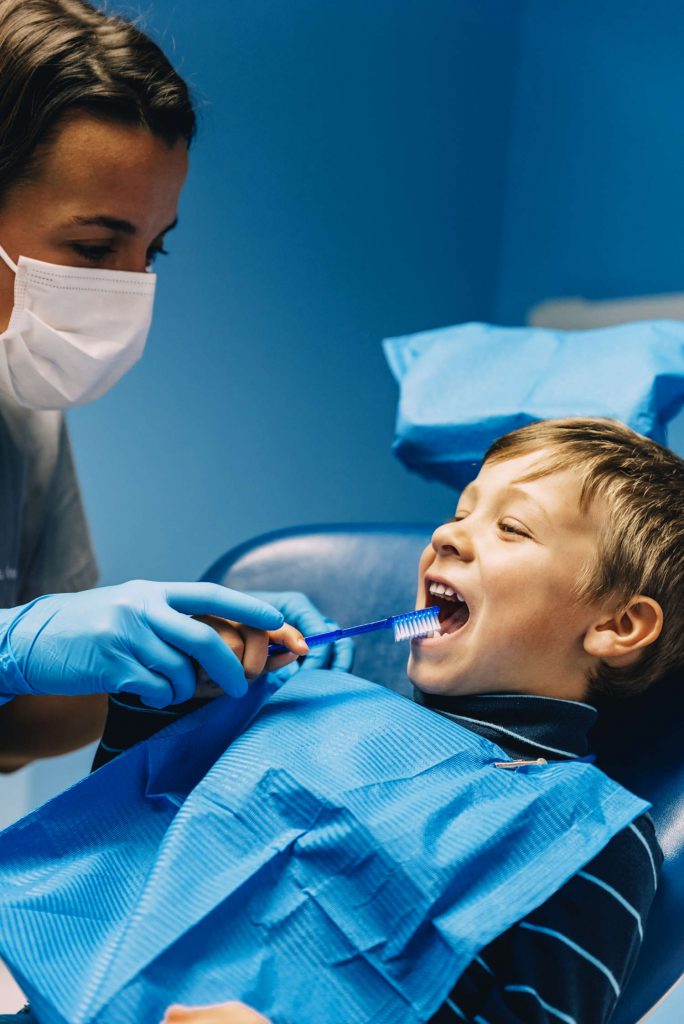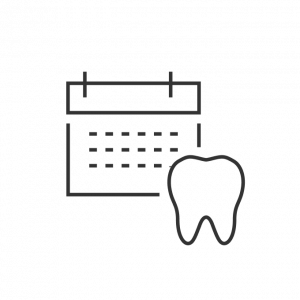Parvathi Pokala, DDS & Associates
Our services
From a routine exam to cleaning, our practice is equipped to handle all of your dental needs
Our Services
From a routine exam to cleaning, our practice is equipped to handle all of your dental needs. To help you understand more about our office, we have included brief descriptions of some of our most common services. Click the buttons below to read more about each service.
Pediatric Dentistry
Pediatric dentists are specialists in treating the oral health needs of infants and children through adolescence, including those with special health needs.
Preventive Procedures
Preventive dental care means practicing good oral hygiene at home and scheduling regular checkups with your dentist.
Restorative Procedures
A crown is a “cap” cemented onto an existing tooth. This restorative procedure can improve the shape or strength of a tooth.
Special Needs Dentistry
We provide comprehensive preventive and therapeutic dental care to patients who have special healthcare needs.
Sedation Dentistry
We have in-clinic general sedation options available. Sedation is most commonly used during extensive procedures or for patients with dental phobia or who find it difficult to sit still.
Emergency Dentistry
Pediatric dentists are trained in all facets of dental care for children and are well equipped to handle a wide range of dental emergencies.
Read More About Our Dental Services
Initial Oral Examination
Your child’s first visit to our office is very important with regard to establishing their oral health baseline. We will begin by carefully reviewing medical and dental histories and taking special note of all dental concerns, as well as any symptoms that your child may be experiencing.
We take pride in creating and maintaining beautiful and healthy smiles for our younger patients in an environment that is lighthearted and fun. We focus on establishing oral health habits that last a lifetime, with education and prevention as our primary tools.
Preventive Dental Care
Tooth decay is the most chronic childhood disease in our country. According to studies, children with poor oral health are more than three times as likely to miss school due to dental pain. While these statistics are alarming, the good news is that tooth decay is for the most part preventable. Scheduling regular checkups and cleanings for your child at the dentist is essential for maintaining their oral health. Beyond routine dental care, your dental care professional will help your child establish the best oral hygiene homecare regimen to help maintain a healthy smile for a lifetime. The dentist will also provide dietary guidance as to which foods can be harmful to your child’s smile. As added protection against dental decay, periodic fluoride treatments to strengthen the enamel of your child’s new teeth and the application of dental sealants when the permanent molars come into place are recommended.
Dental Sealants
As part of your child’s dental prevention program, dental sealants are often recommended to protect their permanent back teeth from developing dental decay. In fact according to the American Dental Association, dental sealants reduce the risk of cavities in molars by approximately 80%.
While establishing a good oral hygiene regimen, maintaining proper toothbrushing habits, and avoiding sticky sweets are essential for the prevention of dental decay, children’s teeth often need more protection. The reason for this is that the deeply grooved chewing surfaces of the back permanent teeth can be difficult for a child to keep free of leftover food and cavity-causing bacteria. Moreover, young children do not always brush their teeth, as often or as thoroughly as they should, making them particularly vulnerable to dental decay.
Dental sealants afford additional protection from dental decay by providing a strong plastic-like protective coating for the chewing surfaces of a child’s permanent back teeth. They basically fill in the pits, fissures and grooves on these teeth to seal out harmful bacteria and food particles. Beyond preventing the development of cavities, sealants may also be useful over areas of incipient dental decay to stop further damage from occurring.
Applying dental sealants is a relatively quick and painless process. They are simply brushed on in a series of steps during a child’s dental visit and then cured (set) with a light wand. Sealants are strong and durable and can last for several years. The condition of your child’s dental sealants will be evaluated at each checkup and reapplied if the need arises.
Dental Fillings
Dental Fillings are the most common type of dental restoration used to replace sections of teeth that are missing, damaged or decayed. While traditional dental materials like gold, amalgam, porcelain, and composite successfully restore teeth; recent advances in dental technology have made a wider and improved selection of restorative choices available. Some of the newest state-of-the-art filling materials including ceramic and the latest composite materials, are not only strong and durable, they offer the most aesthetically pleasing and natural looking results.
Sedation Dentistry
Pulpotomy
Inside of every baby (deciduous) and permanent adult tooth is a central chamber that contains connective tissue, a nerve supply, and blood vessels. Collectively these core tissues, known as the dental pulp, help the tooth to grow and mature before it emerges into the mouth.
Once your tooth is in place, the dental pulp provides nourishment, keeps the tooth vital, and alerts you of problems. Unfortunately, cavities and dental trauma can damage the dental pulp inside of a tooth.
When one of these factors has involved the dental pulp of a primary or deciduous tooth and there is no evidence of an infection at the root of the tooth, a procedure known as a pulpotomy may be performed. The purpose of a pulpotomy on a “baby” tooth is to maintain it until its permanent successor tooth erupts. This is because deciduous teeth that are lost prematurely can result in space loss for the permanent tooth and other consequences. During a pulpotomy procedure, the exposed or affected pulp tissue within the crown of the deciduous tooth (the visible portion of the tooth) is carefully removed and a special medication to disinfect the area and calm the remaining nerve tissue is placed.
Once the procedure is complete, the baby tooth is then restored. Depending on the amount of tooth structure remaining and how much time is left before the baby tooth is to fall out, the type of restoration is selected. Typically, the most effective restoration to seal the tooth and restore function, is a stainless steel crown.
Emergency Treatment
Dental emergencies in children can arise for a number of reasons. Recognizing the fact that children have active lifestyles, means there is always a chance an accident involving a hit or blow to the mouth or teeth can occur. These traumatic injuries can happen at home, in the playground or on the playing field. Common injuries to the teeth and oral cavity seen in a pediatric dental office include everything from soft tissue lacerations of the lips, cheeks or tongue to chipped, fractured, dislodged or “knocked out” teeth. Equally frequent reasons for children to require urgent dental care are painful toothaches, dental infections, and mouth ulcerations. Whatever the dental emergency may be, prompt and effective care is required to alleviate a child’s discomfort and to prevent more serious consequences to their oral health and overall well-being.
Pediatric dentists are trained in all facets of dental care for children and are well equipped to handle a wide range of dental emergencies. They provide skilled and compassionate care, helping children to feel comfortable and safe while restoring their oral health and function.
Space Maintainers
Sometimes, due to tooth decay or a traumatic injury, a child may lose a primary tooth early, before the permanent one underneath is ready to come into place. When this happens, the dentist will consider the best way to hold the space left by the baby tooth in order to maintain a clear path for the succeeding adult tooth. While not every situation where a baby tooth is lost early needs an intervention to maintain the space, many times a small dental appliance known as a space maintainer is required to make sure the permanent tooth does not become crowded out of the dental arch or impacted by shifting adjacent teeth.
Space maintainers are fixed or removable appliances that are designed to keep the integrity of the space left by the lost tooth. Simple and comfortable to wear, the type and design of your child’s space maintainer will be determined by our dentist. Once the permanent tooth begins to emerge, a space maintainer is no longer necessary.
Children with Special Healthcare Needs
Our pediatric dental practice offers a comfortable, prevention orientated environment that helps parents achieve and maintain optimal oral health. For pediatric patients with special healthcare needs accepting dental care in the traditional dental office setting we offer Nitrous Oxide sedation, oral sedation and IV sedation. We also offer dentistry under general anesthesia at Rady Children’s Hospital in San Diego. Each patient is assessed individually before we make a recommendation for any type of sedation. Our doctors have been members of the medical staff for over 25 years and are very comfortable providing dental care in the operating room.
Our friendly staff is dedicated to caring for your children’s oral health and well-being. We take the time to create a personalized treatment for each patient and we offer a wide range of services. It is our goal to make your visit with us an extremely pleasant one and to send you home with a beautiful and healthy smile.




